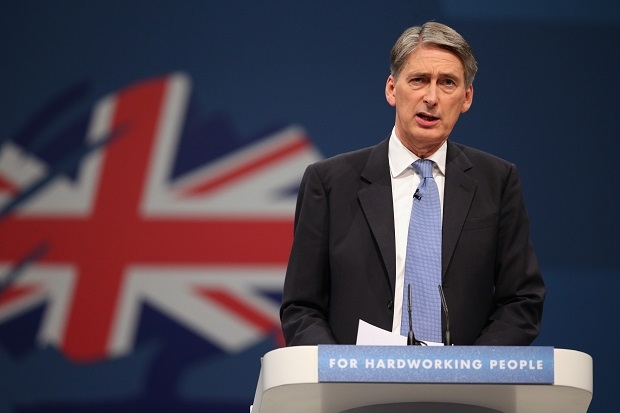The debate on the Defence Reform Bill extended far beyond the proposed amendments. There was much discussion about the future of the armed forces, both regular and reserve. But these digressions into strategy masked a fierce political battle, which the Defence Secretary Philip Hammond won thanks to a masterly performance at the Dispatch Box.
The Defence Reform Bill aims to increase the strength of the Army Reserve (AKA the Territorial Army) from 19,000 to 30,000 by 2018 in order to cover personnel cuts to the regular army, the strength of which is to fall to 82,000. 25 Tory MPs signed an amendment tabled by John Baron (Conservative, Basildon and Billericay). The rebels worry that missed recruitment targets and rising costs prove that the plan is in trouble. As one of them put it to Spectator Coffee House earlier today:
‘Recruiting is in chaos. CAPITA has failed in the out-sourcing and no one is joining the Reserves. [Government] needs to answer what will happen if the 30,000 reserves don’t materialise?’
John Baron has called for a legislative pause so that parliament can scrutinise the bill. He says that this is not a ‘wrecking’ amendment designed to scupper the bill; he is trying to help.
The government, it seems, could do without his help. First, Labour
supports his amendment, so any vote could be very tight. Second, the
Ministry of Defence says that delay might halt recruitment. Philip Hammond has taken a strong but polite line with the rebels. In a letter published in this morning’s Telegraph, he said that their amendment would do ‘serious damage’ to the military.
In this afternoon’s debate, Hammond tried to split his Conservative opponents by maintaining his opposition to Baron’s ‘legislative pause’ while backing a version of an amendment tabled by Julian Brazier (Conservative, Canterbury). This calls for an annual independent report into the Army Reserve, taking in levels of recruitment, training and support.
Hammond’s argument is threefold. First, that Brazier’s amendment provides parliament with sufficient opportunity to evaluate the policy every year (rather than Baron’s one off report). Two, that to pause now would damage recruitment into the reserves, perhaps irrevocably. Three, that Baron’s amendment would turn the policy into a political football, and that proper scrutiny in committees and elsewhere would suffer in consequence.
This was enough to drive James Gray (Conservative, North Wiltshire), who had signed Baron’s amendment, back into the arms of the government. Hammond also found welcome support from big hitters on the backbenches, such as James Arbuthnot, the defence select committee chairman, and Sir Gerald Howarth, the former defence minister and MP for Aldershot.
But Baron and his Tory allies (Dr Julian Lewis, Bill Cash and Peter Bone were notable speakers) stuck to their guns. They were assisted by some very agile opposition, led by Vernon Coaker (Labour, Gedling) – the articulate bruiser who has replaced Jim Murphy as shadow defence minister. Labour argued that the Brazier amendment did not provide sufficient scope for scrutiny because there would be no opportunity to vote; a position supported by Peter Bone and others. Coaker said that Hammond would welcome a vote if he had confidence in his own policy; a point echoed by Tory rebels.
Pushed into a tight corner, Hammond was not afraid to play hardball with Baron. He detected, he said in his closing remarks, the scent of an agenda behind Baron’s position. This had been a recurring theme during the debate: that Baron wants to undo the policy whereby reserves replace regulars. Hammond quoted some of Baron’s looser remarks from the debate: ‘We could very easily reverse cuts to regular army.’ Baron denied the charge unreservedly.
Baron’s amendment went to a division; but was defeated by a margin of 306 to 252. The result was not as close as it might have been. Credit must go to Philip Hammond.






Comments